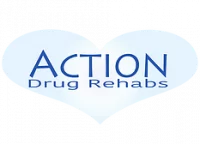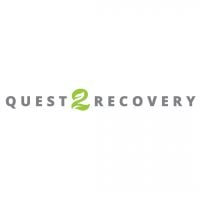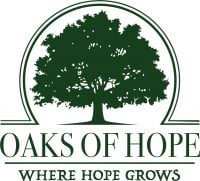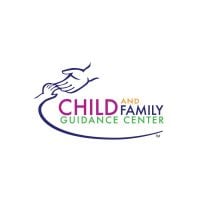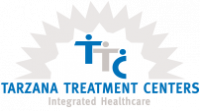Live Again Recovery Homes
Drug Rehab Center in Santa Clarita, California
Live Again Recovery Homes in Santa Clarita, California offers comprehensive treatment for alcoholism, substance abuse, and opioid addiction, providing inpatient treatment, aftercare support, and sober-living/half-way programs with personalized treatment plans and a range of services to support lasting recovery.
About This California Facility
Live Again Recovery Homes, located in Santa Clarita, California, is a trusted facility that specializes in treating individuals struggling with alcoholism, substance abuse, and opioid addiction. Their comprehensive approach to recovery includes a range of services designed to support individuals on their journey to sobriety. Live Again Recovery Homes offers various levels of care, including inpatient treatment, aftercare support, and sober-living/half-way programs. With a focus on personalized treatment plans, they provide a safe and supportive environment where individuals can work towards lasting recovery.
At Live Again Recovery Homes, individuals struggling with addiction can expect to receive a wide array of services and treatment methods to address their specific needs. The facility offers inpatient treatment, allowing individuals to receive intensive care and support in a structured environment. They also provide aftercare support, ensuring continuity of care as individuals transition back into their daily lives. Additionally, Live Again Recovery Homes offers sober-living/half-way programs that help individuals maintain their sobriety while gradually reintegrating into society. These programs often include counseling, therapy sessions, group support, and life skills training, all aimed at equipping individuals with the tools necessary for long-term recovery.
Genders
Ages
Modality
Additional
Conditions and Issues Treated
A drug abuser needs help because if no one helps them, they will not leave their vicious circle.
People who abuse drugs are likely to suffer from an addiction, which can cause serious health problems. It can also cause quarrels with people around them. It is common for drug abusers to have difficulty holding down jobs or relationships, but sometimes people around them can be quite tolerant. There are cases where the families of the drug abusers do not want to see them get any help, and the subject becomes controversial.
When it comes to helping drug abusers get sober, there are many options to choose from. It is essential to state that there is no “correct” way of doing things. People are different, and they need different types of help to get over their addiction.
Opioid addiction treatment should be done in a medically supervised drug rehab. Opioid addiction treatment will include detoxification and drug rehab counseling to help both the user and their loved ones learn how to live a successful sober lifestyle. Methadone, buprenorphine, and naltrexone are three medications that can help treat opioid addiction. Individual drug rehab counseling sessions can be helpful to discuss any questions or concerns with the drug treatment program.
Levels of Care Offered at Live Again Recovery Homes
This center offers a variety of custom treatment tailored to individual recovery. Currently available are Aftercare Support, Inpatient, Sober-Living / Half-Way, with additional therapies available as listed below.
Inpatient treatment is an option that provides addicts with a supportive environment in which they can stop using. This type of intensive care and supervision is appropriate for those who were unable to quit on their own or need more structure than they could get from outpatient treatment, such as the addict most in need of this level of care.
The goal of inpatient rehab is for the addict to stay focused on sobriety and remain free of mood altering substances. Inpatient treatment programs usually offer the following: detox, therapy groups, one-on-one counseling, medication management and aftercare planning.
Sober Living Homes are used in drug rehab to help former addicts maintain sobriety. The staff provides the residents with a safe and supportive living environment to learn how to live a sober life. The staff members also provide the residents with resources to equip themselves better to live a sober life. They also provide them with opportunities for exercise, many of which encourage learning coping mechanisms that will be helpful later on.
Aftercare is a part of drug rehabilitation. It is also known as “post-treatment support.” Aftercare programs are available for addicts after they complete drug rehab. It is often the final step in the recovery process. The goal of aftercare is to ensure that addicts maintain their achievements in rehab and do not relapse. Professionals generally provide aftercare (including addiction therapists, physicians, social workers, psychologists) and involve individual and group therapy sessions.
Therapies & Programs
Individual therapy is a critical component of addiction recovery. It allows the patients to go deep into their core issues and discover how to handle those problems better. Therapy can be conducted in individual sessions as well as group settings. In individual therapy for addiction, the patient meets with their therapist one-on-one to focus on the underlying issues. This allows patients to open up and discuss personal topics they may not feel comfortable discussing in a group setting. This type of therapy can help develop solutions specific to each patient, which helps speed up the recovery process.
Family therapy is a crucial part of drug treatment and getting sober. It is one of the most effective ways to help addicts stay on the path to long-term sobriety. When a drug addict decides that they want to try and get sober, it takes the support of every person they love to succeed. It can be incredibly difficult for loved ones to watch an addict go through the pain and suffering of withdrawal, but by being there with them and supporting them, they can help to make sure that the addiction never returns.
One of the most important parts of family therapy is the relapse prevention plan. During treatment, therapists and doctors will often sit down with the addict and their family to develop a plan in case the addict ever feels like they want to use again. This plan should involve steps the addict and family can take together to prevent them from relapsing in the future. An addict’s family can play a vital part in helping them to avoid relapse because they can spot the warning signs and help them get back on track before it becomes too much of a problem.
Group therapy helps prevent addicts from feeling isolated or unique in their situation by offering a sense of comfort and fellowship. It also creates a forum for addicts to build their support systems and learn from each other. The group therapy sessions at Live Again Recovery Homes occur in a group setting rather than one-on-one to create a safer, controlled environment where addicts feel comfortable.
Dialectical Behavior Therapy was developed in the 1980s to treat chronically suicidal individuals. It is a cognitive-behavioral therapy that combines strategies derived from Zen Buddhism, such as mindfulness training. DBT has been adapted for use with other types of psychiatric problems, including substance abuse and personality disorders. DBT aims to help patients change their thinking and behavior, instead of relying on medication.
Cognitive Behavioral Therapy (CBT) is a common therapeutic approach to help drug addicts. It teaches addicts new ways of thinking and behaving so that they can avoid relapse. There are several forms of CBT used in drug rehabilitation centers.
Cognitive Restructuring helps addicts identify faulty, negative thinking so that they can work together with the therapist to find healthier ways of thinking, resulting in better decision-making.
Cognitive Behavioral Therapy for Addiction uses the principles of CBT to help treat addiction. It focuses on specific aspects of each person’s thinking, feeling, physiology, and behavior. It aims to identify specific problems in these areas and create a personalized treatment strategy.
Payment Options Accepted
For specific insurance or payment methods please contact us.
Additional Details
Specifics, location, and helpful extra information.
Santa Clarita, California 91350 Phone Number(661) 270-0025 Meta DetailsUpdated November 25, 2023
Staff Verified
Patient Reviews
There are no reviews yet. Be the first one to write one.
Santa Clarita, California Addiction Information
More than 3 million of California's citizens are addicted to illegal drugs. Almost 800,000 people use hard drugs, almost 5 million use marijuana, and another 2.1 million abuse alcohol every year. Other substance abuse issues such as binge drinking and teen drug use are also common. Many illegal drugs such as cocaine, heroin, methamphetamine, and marijuana are smuggled into the state from Mexico.
Over 500 drug overdose hospitalizations in Santa Clarita in 2018. Of these, nearly two-thirds were caused by opioids. In 2017 there were over 2,000 drug-related arrests in the area. The rates of drug addiction in Santa Clarita increased about 4% each year due to marijuana. If you are struggling with drug addiction, it is important to get help. There are several rehabilitation facilities in Santa Clarita that can help you get sober.
Treatment in Nearby Cities
- Santa Cruz, CA (259.5 mi.)
- Capistrano Beach, CA (91.1 mi.)
- Ontario, CA (58.8 mi.)
- Loomis, CA (328.8 mi.)
- Manteca, CA (269.4 mi.)
Centers near Live Again Recovery Homes
The facility name, logo and brand are the property and registered trademarks of Live Again Recovery Homes, and are being used for identification and informational purposes only. Use of these names, logos and brands shall not imply endorsement. RehabNow.org is not affiliated with or sponsored by Live Again Recovery Homes.

